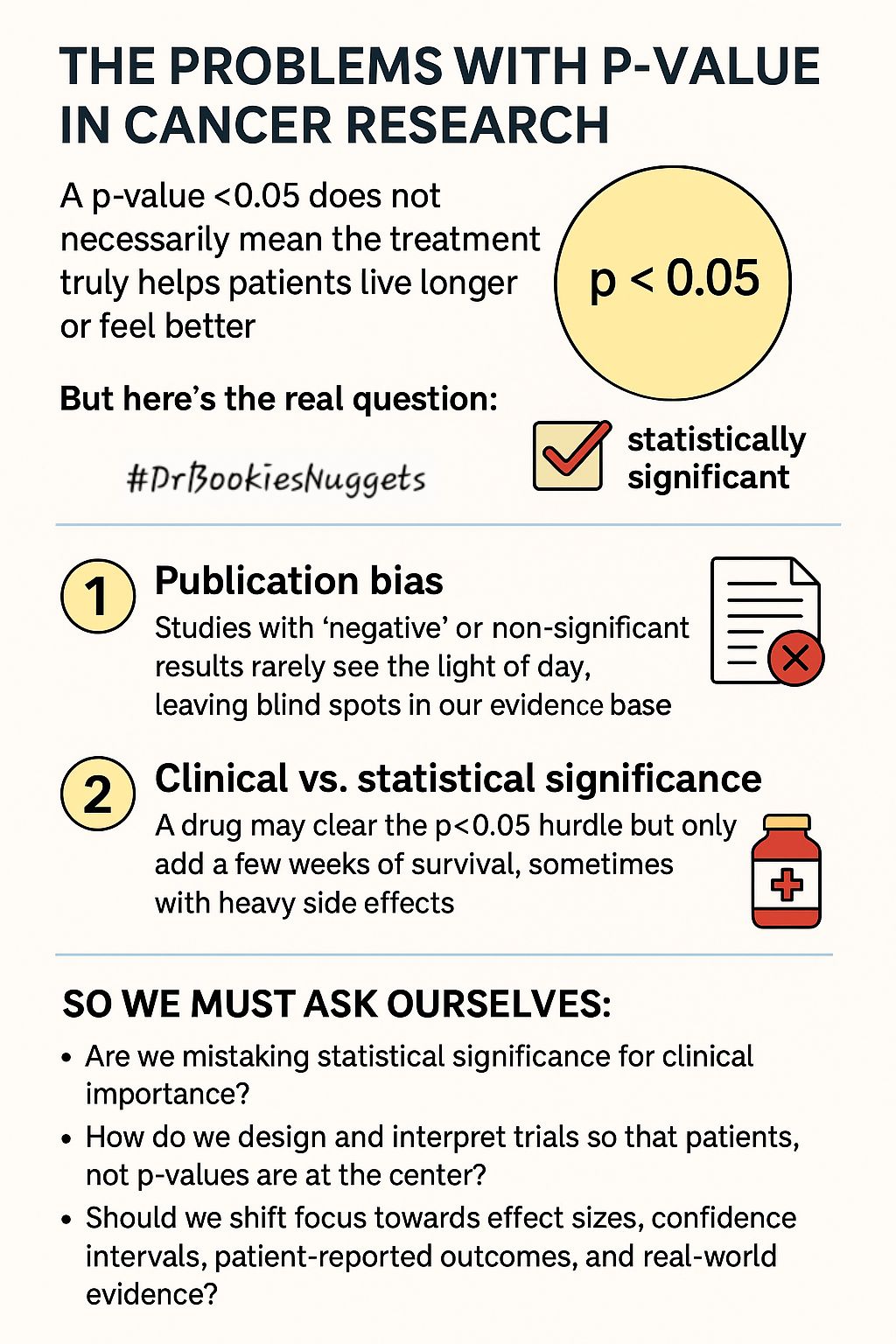Olubukola Ayodele, Breast Cancer Lead at University Hospitals of Leicester NHS Trust, shared a post on LinkedIn:
“In cancer research, we often treat the p-value as if it holds magical significance. When a trial reports a p-value of less than 0.05, it’s deemed ‘statistically significant,’ making it more likely to be published. However, the crucial question remains: does this truly mean the treatment improves patients’ survival or quality of life?
Not necessarily.
A p-value of less than 0.05 indicates that if there were no actual difference between the treatment and the control group, there’s less than a 5% chance of observing the results we found (or something more extreme). This figure alone does not provide information about whether a drug genuinely works in practice, how significant the benefit might be, or whether that benefit is meaningful for patients.
Relying heavily on this single statistic creates two significant issues:
1. Publication bias: Studies with ‘negative’ or non-significant results often remain unpublished, creating gaps in our evidence base. This is particularly important in oncology because patients deserve insights derived from all data, not just the ‘positive’ results.
2. Clinical vs. statistical significance: A treatment may achieve a p-value of less than 0.05 but might only extend survival by a few weeks, sometimes accompanied by severe side effects. Conversely, trials that demonstrate a meaningful trend may be overlooked.
We need to consider:
- Are we confusing statistical significance with clinical importance?
- How can we design and interpret trials in a way that places patients, not p-values, at the centre of our focus?
- Should we shift our attention towards effect sizes, confidence intervals, patient-reported outcomes, and real-world evidence?
The p-value is a valuable tool, but it should not be the primary guide for oncology research.
As we approach ESMO 2025, we will be flooded with an overwhelming amount of data. It’s essential to take the time to thoroughly examine the information presented.
Ultimately, what truly matters is not whether a study passes a statistical threshold but whether it leads to better and longer lives for patients.”

More posts featuring Olubukola Ayodele.


